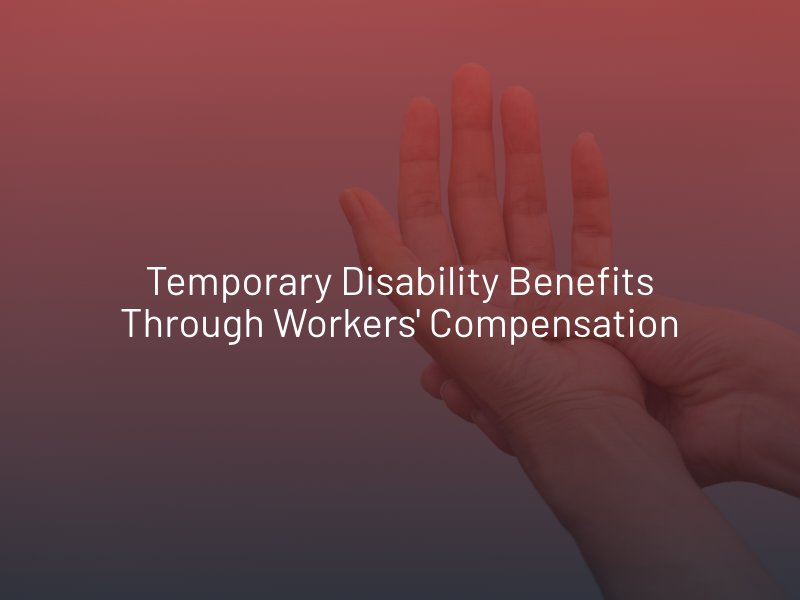Temporary Disability Benefits Through Workers’ Compensation
When workers suffer a job-related injury or illness, they are entitled to workers’ compensation to pay for medical treatment and partial lost wages. The wage replacement benefit is known as Temporary Total Disability (TDD), but only certain injured workers qualify.

How To Qualify for Temporary Disability Benefits
To be eligible for TDD benefits in Nevada, an injured worker must have a written note from an authorized medical provider that states they:
- Were unable to work for at least five days after the injury; or,
- Missed five days within 20 consecutive days due to the injury.
In addition, your employer must not have offered you “light-duty” work, which is a position modified to meet your temporary restrictions that pay an amount equal to your potential TTD rate. If you have questions about your workers’ compensation claim or you were denied benefits, contact a workers’ comp attorney.
How Much Are Temporary Total Disability Payments?
Temporary disability benefits in Nevada are 66 and 2/3 percent of your average monthly wage and generally not taxable. This amount is calculated based on your last 12 weeks of wage history before your injury. If this period does not accurately reflect your earnings, you can request in writing to the workers’ compensation insurer that the calculation be based on the prior 12 months instead. That maximum amount of TTD benefits allowable is adjusted each year. The maximum benefit amount for any work injuries after July 1, 2020, is $4,183.82 per month.
How Long Can I Receive TTD Benefits?
You can continue to receive TTD benefits until you are able to return to work or you have reached maximum medical improvement (MMI). However, Nevada places a 24-month cap on TTD benefits. Your employer may offer you a modified job position if the one you previously held is no longer suitable. If you return to work, but your condition prevents you from earning the same level of income as before, temporary disability benefits can supplement the difference for the amount you would receive for TTD and how much you are making. For example, if you were earning $3,000 each month, your TTD benefit would be about $2,000. If you return to work and can only make $1,500 a month now, your TTD benefit would be $500 to make up the difference.
What if My Temporary Disability Benefits Are Disputed?
In some cases, an employer’s workers’ compensation insurance company may dispute a treating doctor’s opinion on TDD. If that occurs, the insurer can ask you to complete an independent medical exam by a ‘neutral’ doctor. To continue receiving benefits, you must attend this exam. If the neutral doctor contradicts your treating physician’s opinion, you have the right to request a hearing before the state’s workers’ compensation board.
Temporary Disability Benefits and Social Security Disability Benefits
Workers who are expected to take longer than 12 months to recover can also apply for Social Security disability insurance benefits (SSDI). If you are also collecting TTD, then SSDI payments will be reduced since the combined amount cannot exceed 80 percent of your average earnings while you were working.